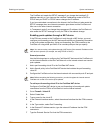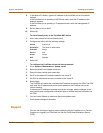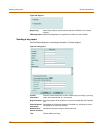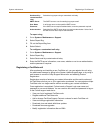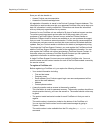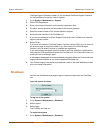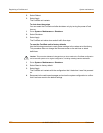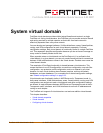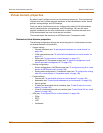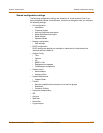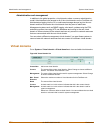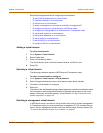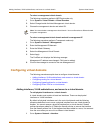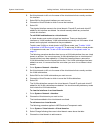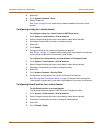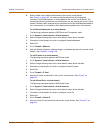
132 01-28007-0068-20041203 Fortinet Inc.
Exclusive virtual domain properties System virtual domain
Virtual domain properties
By default, each FortiGate unit runs a virtual domain named root. This virtual domain
includes all of the FortiGate physical interfaces, VLAN subinterfaces, zones, firewall
policies, routing settings, and VPN settings.
Once you add a virtual domain you can configure it by adding VLAN subinterfaces,
zones, firewall policies, routing settings, and VPN settings. You can also move
physical interfaces from the root virtual domain to other virtual domains and move
VLAN subinterfaces from one virtual domain to another.
This process works the same way in NAT/Route and in Transparent mode.
Exclusive virtual domain properties
The following configuration settings are exclusively part of a virtual domain and are
not shared between virtual domains.
• System settings
• Physical interfaces (see “To add physical interfaces to a virtual domain” on
page 136)
• VLAN subinterfaces (see “To add VLAN subinterfaces to a virtual domain” on
page 137)
• Zones (see “To add zones to a virtual domain” on page 137)
• Management IP (Transparent mode) (see “To select a management virtual
domain and add a management IP” on page 136)
• Routing configuration
• Router configuration in NAT/Route mode (see “To configure routing for a virtual
domain in NAT/Route mode” on page 138)
• Routing table configuration in Transparent mode (see “To configure the routing
table for a virtual domain in Transparent mode” on page 138)
• Firewall settings
• Policies (see “To add firewall policies to a virtual domain” on page 138)
• Addresses (see “To add firewall addresses to a virtual domain” on page 139)
• Service groups
• IP pools (are associated with an interface) (see “To add IP pools to a virtual
domain” on page 139)
• Virtual IPs (are associated with an interface) (see “To add Virtual IPs to a virtual
domain” on page 139)
• VPN (see “To configure VPN for a virtual domain” on page 140)
• IPSec
•PPTP
•L2TP
• Certificates



